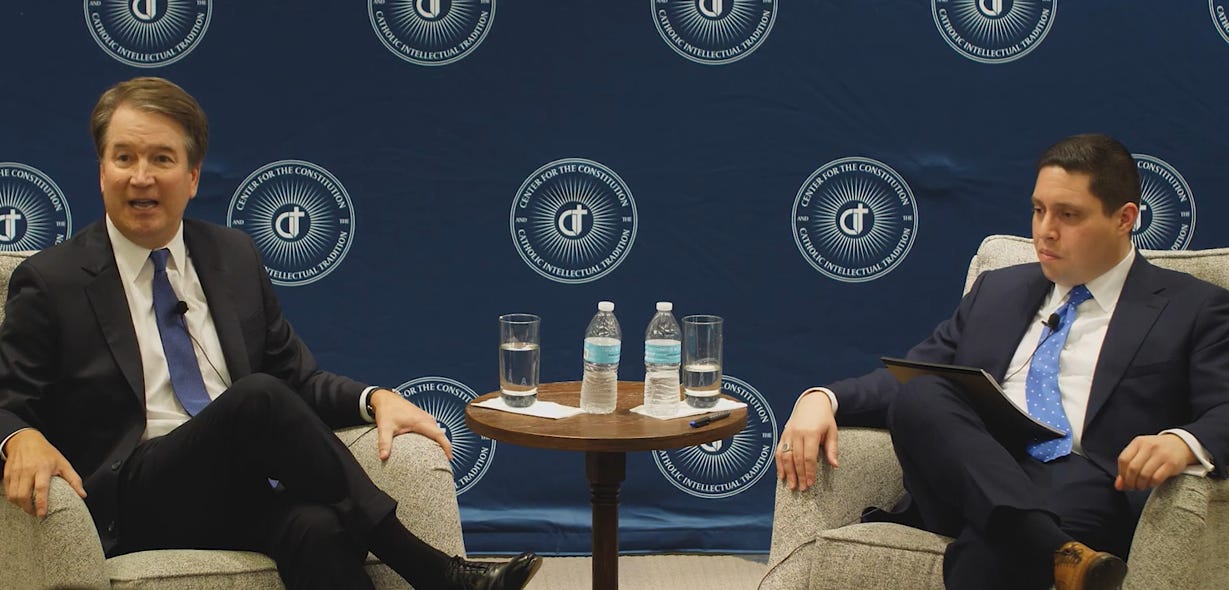D.C. Memo: Justice Kavanaugh Says Don't Over Read Loper Bright 'Course Correction'
◾ Rosenworcel: FCC Lost Its 'Thumb on the Scale' ◾ Carr Warns About 'Torpedoes' Aimed at USF ◾ Ergen Slams Soo Kim's 'Temper Tantrum' ◾ Starlink Tops 4M Subs ◾ DIRECTV Buys Dish, AT&T Sells 70% Stake
Loper Bright: Justice Brett M. Kavanaugh was part of the majority that took down the Chevron Doctrine in June. In an interview last week, he said the decision in Loper Bright Enterprises v. Raimondo was a needed "course correction" to keep the separation of powers in proper balance. "What we did in Loper Bright – in the Chief Justice's opinion – was I think a course correction, consistent with the separation of powers to make sure the executive branch is acting within the authorization granted to it by Congress," Kavanaugh said at Catholic University's Columbus School of Law in Washington, D.C. At the same time, he said, regulatory agencies should not have a problem exercising powers delegated by Congress. "Now to be clear, don't over read Loper Bright. Often times, Congress will grant a broad authorization to an executive agency," he said. FTC Chair Lina Khan said on Sept. 20 that she viewed Loper Bright as a threat because the FTC Act of 1914 provided general authority to prohibit unfair methods of competition. But Kavanaugh said Loper Bright was not intended to bar Congress from making broad delegations of power. "It's really important as a neutral umpire to respect the line that Congress has drawn, and when it has granted broad authorization, not to unduly hinder the executive branch from performing its congressionally authorized functions but at the same time not allowing the executive branch, as it could with Chevron in its toolkit, to go beyond the congressional authorization," he said.


